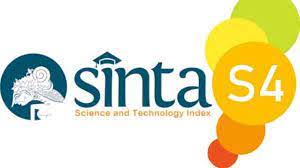Implementasi Emotional Spiritual Quotient (ESQ) dalam Keteladanan Kepemimpinan Jawa di Madrasah
Abstract
The purpose of this study was to analyze the implementation of Emotional Spiritual Quotient (ESQ) in exemplary Javanese leadership at Madrasah Aliyah GUPPI, Rakit District, Banjarnegara Regency. The research was conducted with a qualitative approach and data collection was carried out by observation, interviews, and documentation. The results of the research on Javanese leadership of Madrasah Heads were carried out by giving examples in behavior and work and being polite in speaking. The leadership of the madrasa head not only gives orders, but also shows an exemplary attitude in all aspects, both discipline, responsibility, cleanliness and so on.
Copyright (c) 2022 Rahmawati ., umi arifah, Sulis Rokhmawanto

This work is licensed under a Creative Commons Attribution-ShareAlike 4.0 International License.
This journal provides immediate open access to its content on the principle that making research freely available to the public supports a greater global exchange of knowledge.

Komunika by http://ejournal.iainu-kebumen.ac.id/index.php/An-Nidzam/ is licensed under a Creative Commons Attribution-ShareAlike 4.0 International License
Authors who publish with this journal agree to the following terms:
- Authors retain copyright and grant the journal right of first publication with the work simultaneously licensed under a Creative Commons Attribution License that allows others to share the work with an acknowledgement of the work's authorship and initial publication in this journal.
- Authors are able to enter into separate, additional contractual arrangements for the non-exclusive distribution of the journal's published version of the work (e.g., post it to an institutional repository or publish it in a book), with an acknowledgement of its initial publication in this journal.
- Authors are permitted and encouraged to post their work online (e.g., in institutional repositories or on their website) prior to and during the submission process, as it can lead to productive exchanges, as well as earlier and greater citation of published work (See The Effect of Open Access).










1.png)


